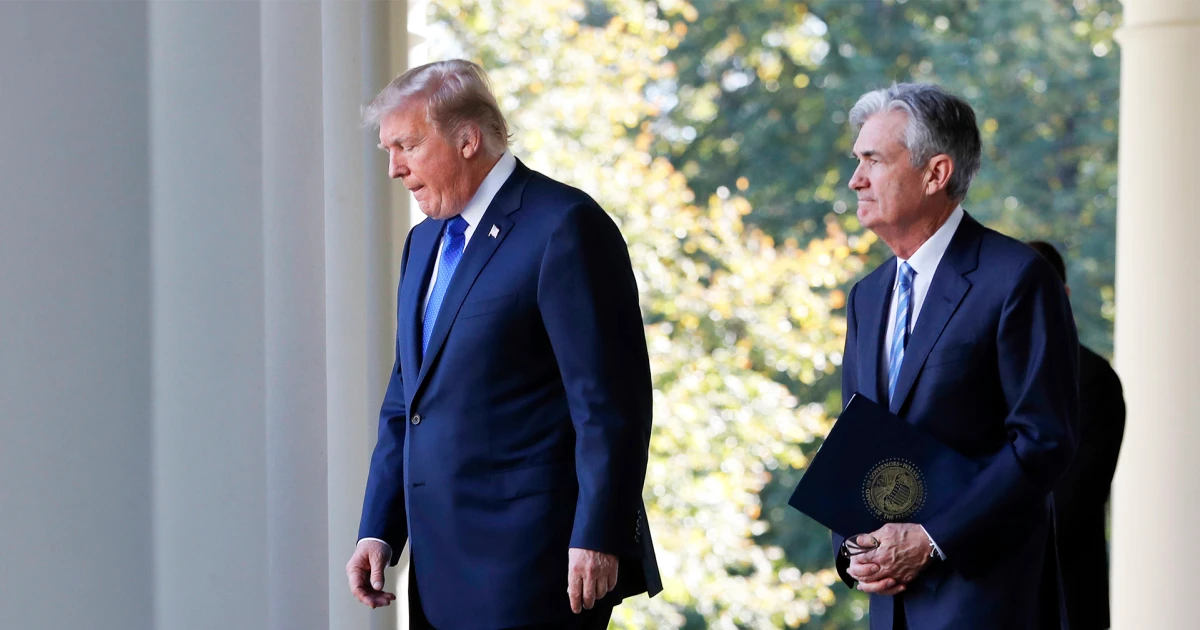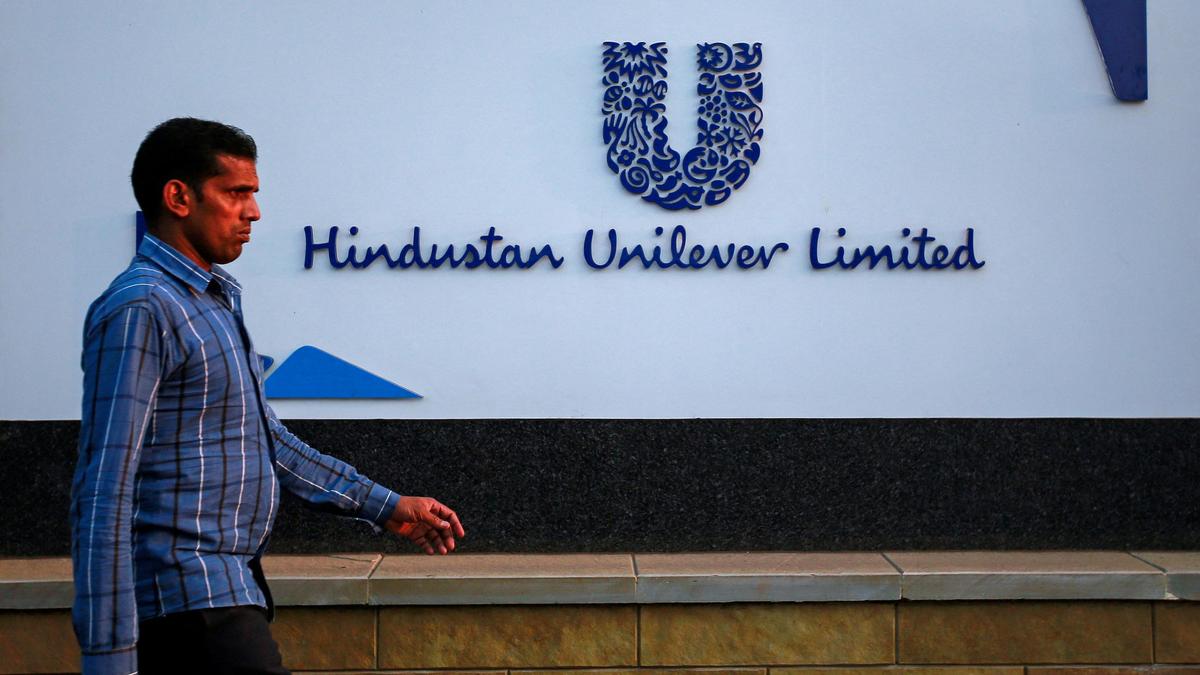Copyright MSNBC

President Donald Trump is expected to receive a long-awaited gift from America’s central bank today: lower interest rates for the second consecutive month. He’s likely to get it from one of the public officials he has most villainized throughout the course of both of his presidencies: Federal Reserve Chair Jerome Powell. Trump lambasted Powell this week, calling him “Jerome ‘Too Late’ Powell” in a speech to Asian business leaders in South Korea. “We’re not going to have a Fed that’s going to raise interest rates because they’re worried about inflation in three years from now,” Trump added. Trump has frequently taken aim at the Federal Reserve chief for holding steady on interest rates as inflation continues to dog the economy — threatening to fire him and then backing off. He is actively seeking a new Fed chair to appoint once Powell’s term as chairman expires in May, engaging in an unusually public search for a replacement. The personal animus continued during Trump’s swing this week through Asia. “We have a person that’s not at all smart right now,” Trump told reporters aboard Air Force One on Monday about Powell. “He should have been much lower, much sooner.” It’s unclear whether Trump’s rhetoric about Powell will change if the Fed shifts course, as is expected. Trump lambasted Powell this week, calling him “Jerome ‘Too Late’ Powell” in a speech to Asian business leaders in South Korea. Trump lambasted the Federal Reserve chair this week, calling him “Jerome ‘Too Late’ Powell” in a speech to Asian business leaders in South Korea. The last time the Federal Reserve dropped its funds rate was in 2024, in a series of decisions that Trump has described — without evidence — as politically motivated, coming both before and after his election. Now that all signs suggest the president will get his wish of lower borrowing costs, economists say it’s unlikely to deliver immediate relief. Although a key inflation reading turned out to be lower than expected last week, it was still above the Fed’s 2% target, coming in a full point higher at 3%. Enduring inflation has remained a thorny issue for Trump, running counter to his campaign vows to lower the cost of living for Americans while he is in office. A majority of Americans, 74%, say that economic conditions are only “fair” or “poor,” according to a recent survey from Pew Research Center, including more than half of Republicans and 90% of Democratic respondents. William Yu, an economist at the University of California, Los Angeles, said the Fed is responding to “a problem” in the economy, specifically weak labor and housing markets. Cutting the federal funds rate is the “right decision,” Yu said. The Labor Department has yet to release its official monthly jobs report due to the ongoing government shutdown in Washington, D.C., but forecasters say the downward trend of recent months is likely to continue. Multiple corporate giants, including Amazon, Target and United Parcel Service, announced massive layoffs this week. Meanwhile, Meta, the owner of Facebook, and Rivian, an electric-vehicle company, said they also cut about 600 jobs each. In August, unemployment rose to 4.3% for the first time since October 2021. Previously, data showing a strong job market and stubborn inflation kept interest rates near their highest levels in more than a decade. The prevailing calculation on Wall Street is that the Fed will lower interest rates by 25 basis points, or 0.25%. Typically, a downward adjustment is a sign that the board wants to encourage economic growth. “I don’t think it will change the trajectory of the economy all that much,” said Josh Bivens, chief economist at the progressive-leaning Economic Policy Institute. Cuts “will not be any kind of game changer in the near term.” Bivens, like other analysts interviewed by MSNBC, said he believes that the White House’s tariff policies are pushing prices higher. Five Senate Republicans on Tuesday voted to block Trump’s duty on Brazil in a rare rebuke of the president. Those levies, Biven said, are more likely to continue to drive costs going into next year, rather than the federal funds rate. Yu also expressed skepticism that interest range changes will have a sizable impact on inflation, though for different reasons, including increased costs for rent, insurance premiums and medical expenses. “That is totally different, totally unrelated to monetary policy,” he said. Still, the California-based professor sees bright spots, including positive expectations for gross domestic product in the third quarter. Tech companies have kept output high, generating trillions of dollars globally so far this year. However, “very few” sectors outside tech are growing, said Jai Kedia, who studies macroeconomics at the Cato Institute, a libertarian think tank. The persistence of elevated prices has led to some debate about the Fed’s next move. “I understand that the Fed is worried about the labor market and is trying to lower rates to boost employment,” Kedia said, “but if you look at the trade-off between employment and inflation, I think the decision to cut rates is much harder than what most people seem to be making it out to be.” The central bank’s decision comes on the cusp of a meeting between Trump and China’s President Xi Jinping in South Korea. U.S. officials are optimistic that the two competitors will avoid another escalation in a roller-coaster trade war that has the potential to destabilize the global economy. Kedia pointed to “the highest tariff rates we’ve had in several decades” as the main culprit for his assessment of a “poor economic cycle.” Some companies are absorbing tariff costs, Yu noted, preventing consumers from paying them. “People expect that the Fed will change something and it’ll have drastic effects,” Kedia said, “but really, a 25 basis point interest rate cut isn’t going to change companies’ minds on whether they shouldn’t fire people or shouldn’t hire more.” The libertarian economist sees supply shocks as causing both unemployment and inflation to rise, and he said he believes more companies are passing along tariff costs to Americans. Nonetheless, a rate cut is precisely what Trump has lobbied for, including by floating the prospect of ousting Powell on several occasions. The Fed is considered an independent government agency, making the removal of a chair highly unusual and unprecedented. The president, as recently as Monday, mused about replacing Powell at the end of his term in May. “I think it’s the world’s easiest job, but to get it right, you have to be very smart, and we have a person that’s not at all smart right now,” Trump told reporters aboard Air Force One. The president in September appointed his former chief economist Stephen Miran to the Federal Reserve. Miran is the one governor whose recommendations largely depart from his fellow board members by calling for bigger rate cuts. Lower borrowing costs help homebuyers save money on purchasing, along with other consumer lenders, an important reason why the president has pushed for a change in Fed policy. Trump has called for dramatically bigger rate cuts. With several months remaining until Trump gets his pick for a new chair, he’s still taking jabs. "We’ll appoint somebody that we all like, because we should have the lowest interest rates of any country, because without us, there are no other countries, really." he said this week.



